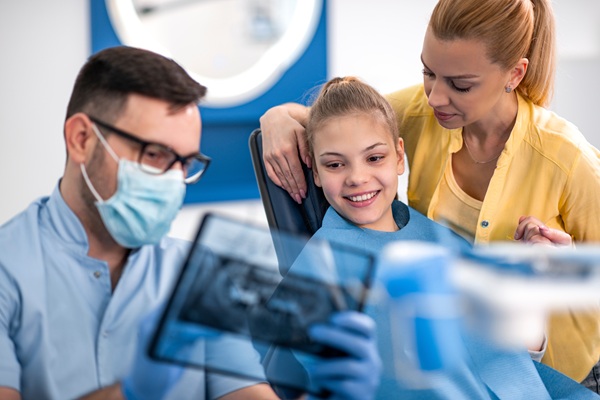 Full dentures can replace the teeth of each dental arch. Your gums and saliva will form a seal to help keep them in place. Getting these restorations can be life-changing. Understanding what will happen after getting them can help prepare you for each step. Here are the things you must look forward to after getting your full dentures.
Full dentures can replace the teeth of each dental arch. Your gums and saliva will form a seal to help keep them in place. Getting these restorations can be life-changing. Understanding what will happen after getting them can help prepare you for each step. Here are the things you must look forward to after getting your full dentures.
The first day
The patient may need dental extraction before getting dentures. Taking the prescribed antibiotics and pain relievers can help the extraction sites heal. Keeping the dentures on during the first day of getting them can help the gums heal from the extraction. The restorations will serve as a band-aid.
The dentist may even recommend wearing the dentures during bedtime. The gums will be tender and sore. Using dentures to chew may cause more pain. Eating soft foods, such as mac and cheese or mashed potatoes, will be better for healing gums.
The first two weeks
After a day of wearing the dentures, the patient must go back to the dental clinic. The dentist will need to remove the stuck dentures and clean them. There will be sore areas after wearing the restorations for a day. Expect more saliva production as well. The gums will contract as they recover.
Visiting the dentist many times will help the dentures fit better. Protein-rich drinks or smoothies will be a good alternative to solid foods if the patient still experiences pain while eating. The mouth will adjust to the new restorations. Rinsing the mouth with a warm salt solution can help soothe the discomfort. Pain that persists is a sign to return to the dentist for some adjustments. The patient will have a longer healing time and will need denture adjustment if there was a dental extraction before the dentures.
After two weeks
Adjusting to the new full dentures will take some time. The patient will have less saliva production and fewer sore areas in the mouth. The dentist can make proper adjustments to the restorations. Talking and eating with these prostheses will need time to get used to. Lisping often happens. This can fade by reading aloud from a book, or a list of difficult words to pronounce can also help.
After 15 days to three months
The patient will be learning how to eat and talk. Adjusting to the feeling of having a dental appliance in the mouth is part of the healing. Saliva production and soreness will go down more. A denture adhesive can help improve the feel and fit of the full dentures. Be careful not to use too much of it.
After a month
The patient should be used to the dentures after a month. The fit may change because of the changing gum tissue. The prostheses will start wearing out as well. Visiting the dentist will help the restorations fit better.
After three months to a year
The patient will learn to talk and eat well with the dentures. Moving on with life and enjoying it will be easier. Every five to 10 years, the patient will need new dentures. Seeing the dentist for regular checks and adjustments is necessary.
Preparing for full dentures can make your prosthesis experience more rewarding
Losing teeth is a treatable issue. Full dentures can give you your smile and dental function back. Understanding what you will go through after getting dentures can help prepare you for the transition. Working with your dentist can help your dentures last and fit well for a long time.
Request an appointment or call Gledhill Dental at 509-800-8410 for an appointment in our Kennewick office.
Related Posts
Regular check-up visits are ideal for denture wearers to protect their smile and help ensure a comfortable fit for their dentures at all times. In this review, we discuss why it is imperative for patients with dentures to visit their dentist regularly.There are many things that a patient can do at home to protect their…
Receiving dentures is a straightforward process, but it is determined by the type of dentures you receive. There are three types of dentures we will consider for your case, and in doing so, we will walk you through the process in depth at the time of your appointment. This article strives to provide you with…
Dentures can replace teeth right away. It is a common solution to tooth loss. Because of many innovations in dentistry, you can now have many types of dentures to choose from. Knowing the right ones for your needs can help you decide which one will suit you the most. Here are the different types of…


